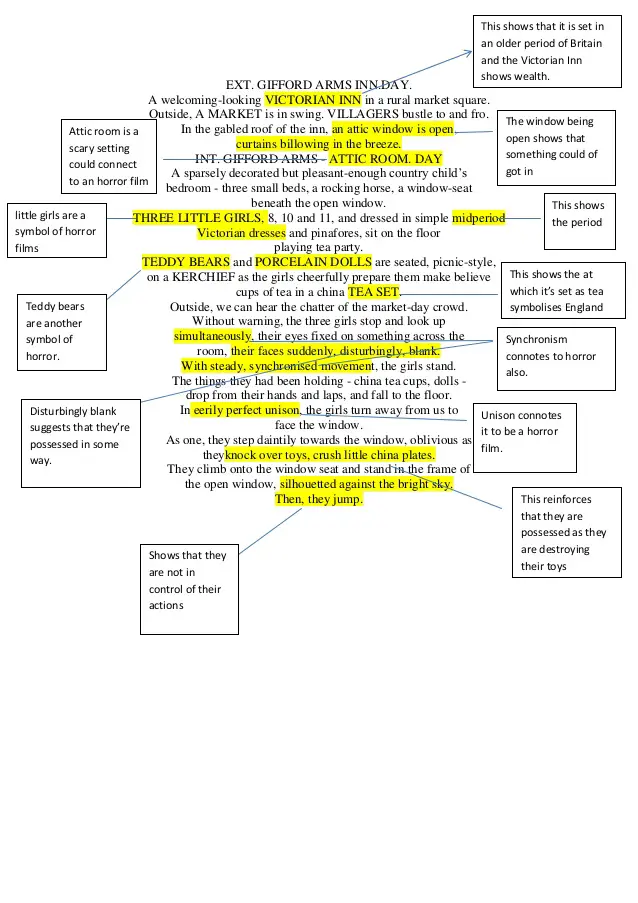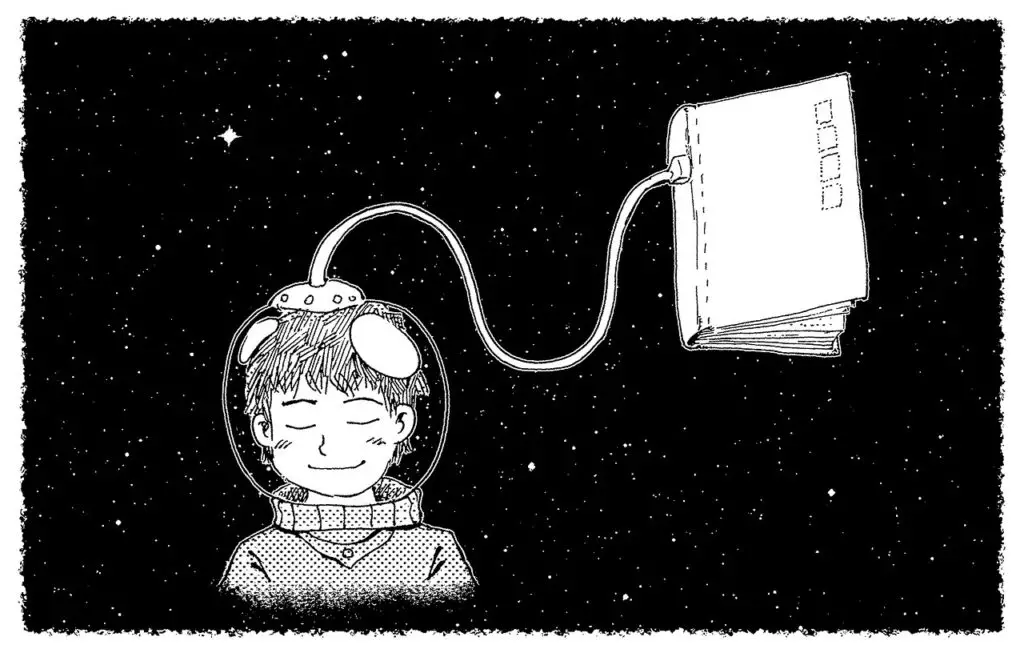In this blog post, we will answer the question: ” what is script analysis?”,” Why is script analysis important? ” what are the checklists for breaking down a scene?” etc… all the essentials that will help you perfect the way of approaching a script.
What is script analysis?
Script analysis, also known as “table work” or “text work” is the process of reading and studying the text of the script in a detailed manner.
It is based largely on concepts derived from Stanislavski’s system of acting and method acting.
Analyzing a script allows actors and directors to develop a comprehensive understanding of the different aspects of a script, such as the setting, subtext, and characters’ objectives.
Actors use script analysis to create a variety of choices and interpretations that enables them to follow their intuition and instinct and act believably.
It is used in auditions and performances and is an indispensable tool for small as well as big roles.
When actors analyze a script, they break it down into smaller chunks like scenes, units, and beats. This makes it easy to explore and play with ideas and interpretations to come up with original and truthful portrayals.
Every time you conduct an in-depth study of your character and the world around it, you increase your capacity to deliver an exciting and special performance.
You also learn about your own perceptions in the process, as well as expand your understanding of others.
When analyzing a script actors have to read the text multiple times and in each reading, they should focus on different key aspects of the script.
Why is script analysis important?

Script analysis helps actors think from the perspective of a character which allows them to pick up certain nuances and specific details that makes their performance captivating.
When you study your script thoroughly you are able to let go and inhabit the character’s behavior, characteristics, and humanity.
One of the keys to great acting is the ability to make strong choices. To do this you need to understand your character’s objectives or motivations which you achieve by studying and analyzing your script.
The job of analyzing the script plays a vital role for all personnel that have a creative decision on your set or stage.
This includes costume and set designers, other actors, producers, and especially the director, who will be breaking down and analyzing your character as well.
The director will have ideas that he or she will be sharing, and you have to be open-minded and flexible to incorporate those suggestions into your performance.
By doing a thorough script analysis you will easily understand the director’s input and make this collaboration effective.
Every time you pick up a new script, your approach will usually change, because every script is unique and needs to be analyzed differently. The biggest differences are those between comedy and dramatic scripts.
Step one: Read the script

Whenever you are working on script analysis you will read and re-read the script several times. When you read a script for the first time, try to do it in one sitting.
While reading your script it is essential to reserve any judgment and enjoy it if possible. It doesn’t matter if you like the script or not, as long as you intend to work on it.
In the first readthrough of the script analysis, your aim is to get a general feel for the story and tone of the script. Your focus should not be on analyzing it, but rather simply absorbing the story.
Try to put yourself in the shoes of the audience and see it from their perspective. Pay attention to your reactions. What excites you? Surprises you?
Then, on subsequent readings, you will begin to analyze the script in more depth.After you have read your script multiple times ask yourself some questions to get an overall understanding of your script.
- What is the play about?
- Who’s the protagonist?
- What makes me care about this play?
- Why would I want to see this play?
- If I were directing the play, what would be my takeaway message?
Given circumstances
The first thing you need to do when analyzing a script is become familiar with the circumstance or context of the situation.
Given circumstances are the facts that describe the environment or world of the play.
It refers to the environmental and situational conditions which influence the actions that a character will take. You can find the given circumstances in stage directions but usually, character dialogues are the best source of information.
The best way to find out the given circumstances in your script is to ask questions. These are known as the 5 W’s or who, what, when, where, and why.

1. Who am I?
This question is referring to your character. Answer this question in a specific manner. Don’t use vague or generic titles like student, lawyer mom, kid, etc.
Instead, dig deep into the nature of your character, and use descriptive adjectives like self-centered, ambitious, intelligent, callous, etc. .
- What is your background?
- What are your fears and desires?
- What do you like?
- What are your beliefs?
- What are the significant people or events that have shaped you into who you are?
Next, find out who the other person or character is in the scene with you.
- What is your relationship to this character/person
- How do you feel about them? Do you like them or resent them?
- Are you scared of them or do you feel like you are superior?.
Finally, make notes of everything that’s said about your character by others and everything your character says about themselves.
2. What do I want/need from the other person/character in the scene?
This is your character’s main objective or motivation for everything they do in a scene. Any actions that you carry out should always be done with the intention of getting what you want from the other characters in the scene.
Make your objective something hard to attain or that will impact your life in a major way. This means that you have overcome a big obstacle to get your objective.
When your objective is hard to get, then you have made a strong choice as an actor in that aspect. Here are other related questions to look at?
- What is your emotional relationship with the other characters in the scene? Does it change throughout the story? Is it familiar or unfamiliar?
- What is the inciting incident? What is the conflict?
- How will I get what I want? This is known as a tactic. Experiment with different tactics to see which one works best for your obtaining your objective.
- What happened to your character before the scene starts and right after it ends? This question enables you to figure out the energy and temperament your character enters and leaves with.
3. Where am I? Or Where does the situation take place?
It’s important to pay special attention to how the place or location affects your character. People act differently in public and in private as well as in cold and hot climates. Think about how your location will affect your actions or behavior.
For example, you would probably shout and be physical on a football field and be quiet and studious in a library. A useful practice is to think about the details of your environment
- Sights
- Sounds
- Smells
- Weather
- Atmosphere
4. When does the scene take place?
It is important to describe the year, month, season, day, and time in which your scene is happening. When you add context to the “when”, it is easier to see its significance. For example, It is Valentine’s Day on a frigid February night and you are driving on an icy road.
Use time to make your objective more urgent and harder to achieve.
For example, It’s 7:45 am on Monday morning and you need to make it to work by 8 am or your boss will probably fire you this time.
5. Why do you want your objective?
Note: Be aware that this is an interpretive question and you should leave it till you get to the interpretation stage. You have to identify the compelling reason driving your objectives on stage or onset. To create tension and raise the stakes, you need a convincing reason for why you are pursuing your objective.
Now, go through your script and highlight all the facts about your character you can find. This means information that is true and can not be disputed or questioned.
This will help you identify what text or information is left for interpretation.
Step two: Dissect the script into scenes and beats
Break the play down into manageable chunks of scenes and beats to help you focus on a unit of action at a time. It helps you to easily follow and understand the sequence of the story.
Furthermore, it enables you to identify points in the text where you change action. Scenes usually change when:
- The setting changes
- Characters on stage change
- Passage of time
Scene Analysis
1. Character Journey

A great way to make a scene work for you is having your character begin in one state of emotion, and end in a different state. You can do this in two easy steps.
Make a list of all the scenes you are in. For each one, identify the emotional change of state. Eg: from hopeful to devastated, from worried to exhilarated.
Next, determine the source of conflict. If you can find a verifiable source of conflict and there is an emotional change, then you know you have an excellent scene.
2. Plot Progression
When actors get hired for a role, they sometimes only receive their own sides. However, they are still aware of where their character starts and where they end up.
Acting is a dynamic business and nothing is set in stone including your scripts. A writer might get rid of your scene, or shuffle something in the edit that changes the whole story.
Bearing this in mind, one way to improve your scenes is to let go of any attachment to the plot. Instead, simply focus on your short-term objectives.
3. Exposition
In most cases, if you are performing in an exposition scene, it is necessary to the project and not to your reel.
When acting in an exposition scene, understand that the information is more important than the drama. You should always ask yourself why you are motivated to explain this information.
Action the script accordingly, and rather than inserting emotional responses in, try to imagine and emulate how your character feels about the current moment.
Checklist for breaking down a scene
- Tone: Identify the type of your scene, and adjust your style of acting accordingly.
- Conflict and objective: Find the objective, obstacle, and conflict of the scene. Write down what would happen if you don’t achieve your objective. Keep it simple but make sure you execute this well as it is the main driver of your scene.
- Relationships: Understand how you relate to the other actors in the scene. Be clear and concise.
- Point of view: Identify your character’s perspective and jot it down on a corner of your script.
- What happened previously?: Make sure you connect emotionally and physically with what transpired before the beginning of your scene.
- Character: Use adjectives that best describe your character so that you can tune in to their behaviors and mannerisms.
- Operative words: highlight the words or phrases, your character says that need to affect the other characters in the scene and vice versa.
- Subtext: write down your character’s thoughts including the times when they are not talking.
- Unwritten moments: Make sure pauses are occupied with thoughts and pay special attention to your character’s behaviors and reactions.
Beat analysis

Now, it’s time to break down your scene even further into beats. A beat is the smallest unit of action in a play. It has a clear beginning, middle, and end. Characters pursue a simple objective in a beat.
To find beats, you’ll need to create a beat map. Before doing that, however, you have to know why a beat changes. Beats change or shift when a character’s objective or routine changes.
This includes changes in mood, language, as well as tactics. Beats change when any character enters or exits a scene. Such scenes are called “French scenes” and are the easiest beats to find.
Another scenario in which a beat change happens is when other situations shift. These occur when::
- Characters change the topic of conversation
- They discover something new
- The outside world intrudes on or affects the action on stage
Beats also change when characters change the tactics they use to achieve an objective.
Scoring a beat
Mark any significant beat changes/shifts in tone or character development on your script by using two forward slashes (//). These go any place in the text where there is a change..
Example: Alicia: I can’t believe you forgot to pick up Tim from school today. How could you do something like that?
Becomes
Alicia:I can’t believe you forgot to pick up Tim from school today. // How could you do something like that?
The beat changes when Alicia goes from reflecting on the negligence to Tim, to demanding an explanation.
You will explore the reason for the change during rehearsal, but for now, simply mark the beat change.
When you are acting your beats, remember this simple rule. A new beat means new energy. Beats show the rhythm of a scene and as a scene shifts so will the rhythm.
One technique you can use to bring new energy to a beat change is to change your volume. If you speak with a higher volume than your scene partner, it is called “topping”, because your energy was bigger than theirs.
You can’t use the same beat-changing technique whenever a beat changes. It’s important to mix it up.
Try increasing the intensity while speaking in a low volume or whisper. You can also pause or use a physical gesture to emphasize a beat change.
Step 3: What Does the Character Want

The next step is to establish what an actor’s character wants. This may be explicitly mentioned in the script; however, in most cases, you have to figure it out by combing through subtle clues.
A simple yet effective way to approach this, is to ask “what does a character want from the other characters in the scene?” This alone will help you discover the character’s objective. The following questions will help you find what your character wants.
What is the overall objective or super-objective of your character?
What is the one ultimate goal that you are trying to achieve throughout the script or story? Discovering a character’s super-objective adds momentum, complexity, and authenticity to the world of the script or story and to the character.
What is your character’s objective?
What are you trying to achieve in a given scene or beat? Every scene or beat objective has to align with the super-objective and contribute to it. Find three objectives and explore and play around with each one.
Then choose the objective that you connect with deeply or has the most effect on you. It is also critical to ask why you are doing or saying something in a particular scene or beat.
Understanding the reason behind your character’s objective will inform the acting choices you make.
What obstacle is your character trying to overcome to accomplish their objective?
Identify the obstacles scene by scene. Obstacles can be mental, emotional or physical things. They help you better understand your objectives and raise the stakes in a scene.
Digging deep into a scene and finding more subtle obstacles will help you make choices that are interesting and unique. Furthermore, you now have more reasons to fight for or achieve your objective.
The Power Of The Actor by Ivana Chubbuck is an excellent book to learn more about acting objectives.
How is your character going to achieve their objective?
What tactics or actions is your character using to overcome an obstacle and accomplish their objective? Use active, present-tense verbs to express tactics. It has to be a verb that you can do to another character or person.
Use the format I verb you, to add directness and urgency to the action. Eg. I beg you, I flatter you, I insult you, etc. Tactics inform your physical and vocal behavior and allow you to make specific choices in your acting.
Actions: An Actor’s Thesaurus by Marina Caldarone and Maggie Lloyd Williams is an excellent resource for action verbs.
Step 4: Scoring/marking the script
Scoring a script involves marking beat changes, blocking, inflections, speaking tempos, and writing short notes on your script.
Note: Use a pencil for scoring your script and writing notes, so that you can remove or change your markings easily whenever you have to.
- Mark beat changes with two forward slashes //.
- Write your character’s intention for a scene at the top of the page where the scene starts.
- Write your tactics or actions next to the lines or beats you will use them in.
- Underline significant words that you want to emphasize or inflect to deliver a certain emotion.
Example: How dare you talk to me this way?
How dare you talk to me this way?
How dare you talk to me this way?
How dare you talk to me this way?
- Mark inflections with the up and down arrows. For speaking tempos you can use a dot “.” above words/sentences for fast tempo. For words with slower tempo use a squiggle. “~”
- Use abbreviations for positioning or physical actions.
Example: KN = kneel
SD = sit down
SU = stand up
- Go through the dialogues in a scene and identify the one underlying emotion that is driving the character through the whole conversation. Write it down next to the dialogue it pertains to.
Script analysis tips

- Cross out any stage directions with a pencil while you are doing your analysis. After you have analyzed your script you can restore them and refer to them if necessary.
- Highlight all the lines that only your character speaks. This lets you look at the amount of dialogue you have as well as the other character’s lines at a quick glance.
- If you don’t have the whole script but only three or four pages for sides, here are a few things you can do.
- The page number of your side will let you know whether your scenes are in the beginning, middle, or end of the script or story.
- For example, in a standard movie script (100 pages) the first 25-30 pages make up the beginning or Act 1. The following 40 pages make up the middle or Act 2.
- The last 30 pages constitute the end of the character’s journey or Act 3. If you understand the basic patterns in a character arc the page number will clue you in on where your character is in their journey.
4. The first time a character is introduced in a screenplay, their name will be written in ALL CAPITAL letters. If a character’s name is not in caps then they have already been introduced.
If your character is a lead and their name is written in all caps on your sides, it’s very probable that the story and your character’s journey are just starting.
5. Look up words and concepts you don’t understand. You can write the definitions in the margins of the script. If you don’t know a word or you have understood it differently than it was intended then this will negatively affect your acting choices.
Script analysis resources
Script analysis by actors/theatre students
Script analysis of Death of a salesman
Script analysis of A street car named desire
Script analysis by script writers
Script Analysis of The Big Lebowski by Rob Rich
Script analysis of Up by Alyssa Maio
Script analysis of Zootopia by Will King
Movie scripts – scene by scene breakdown
Tv and movie scripts
Play scripts
Stage plays
Play scripts
Short plays (play at home)
Books
Script Analysis for Actors, Directors, and Designers by James Thomas (pdf)
Conclusion
Analyzing a script allows actors and directors to develop a comprehensive understanding of the different aspects of a script, such as the setting, subtext, and characters’ objectives.
When actors analyze a script, they break it down into smaller chunks like scenes, units, and beats.
This makes it easy to explore and play with ideas and interpretations to come up with original and truthful portrayals.
Leave a comment with your opinion or any questions you may have below…


